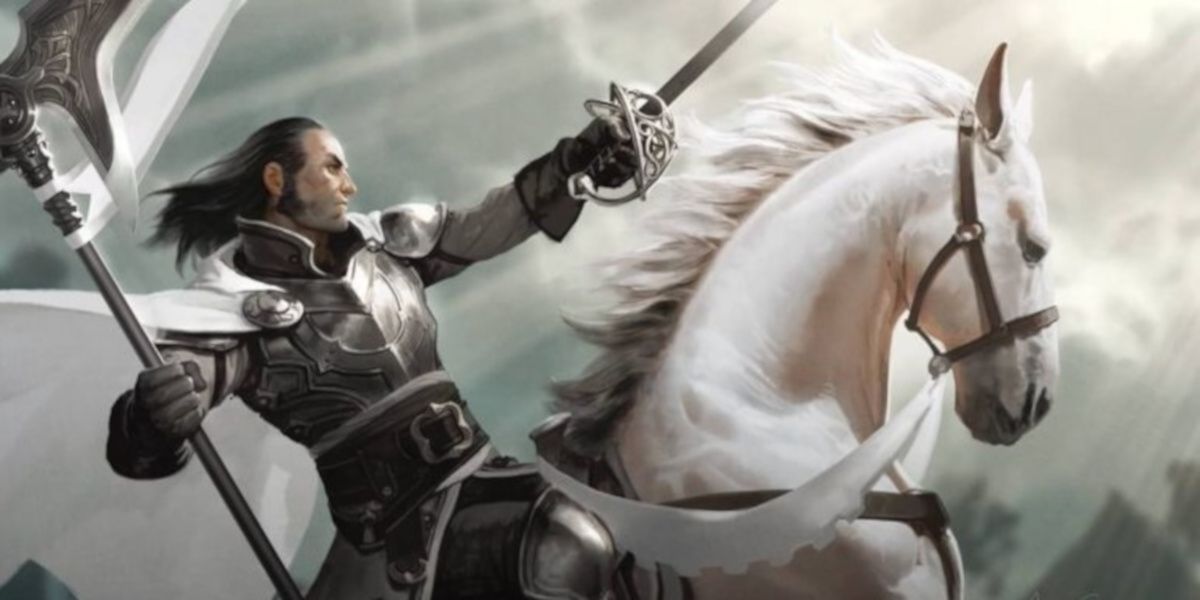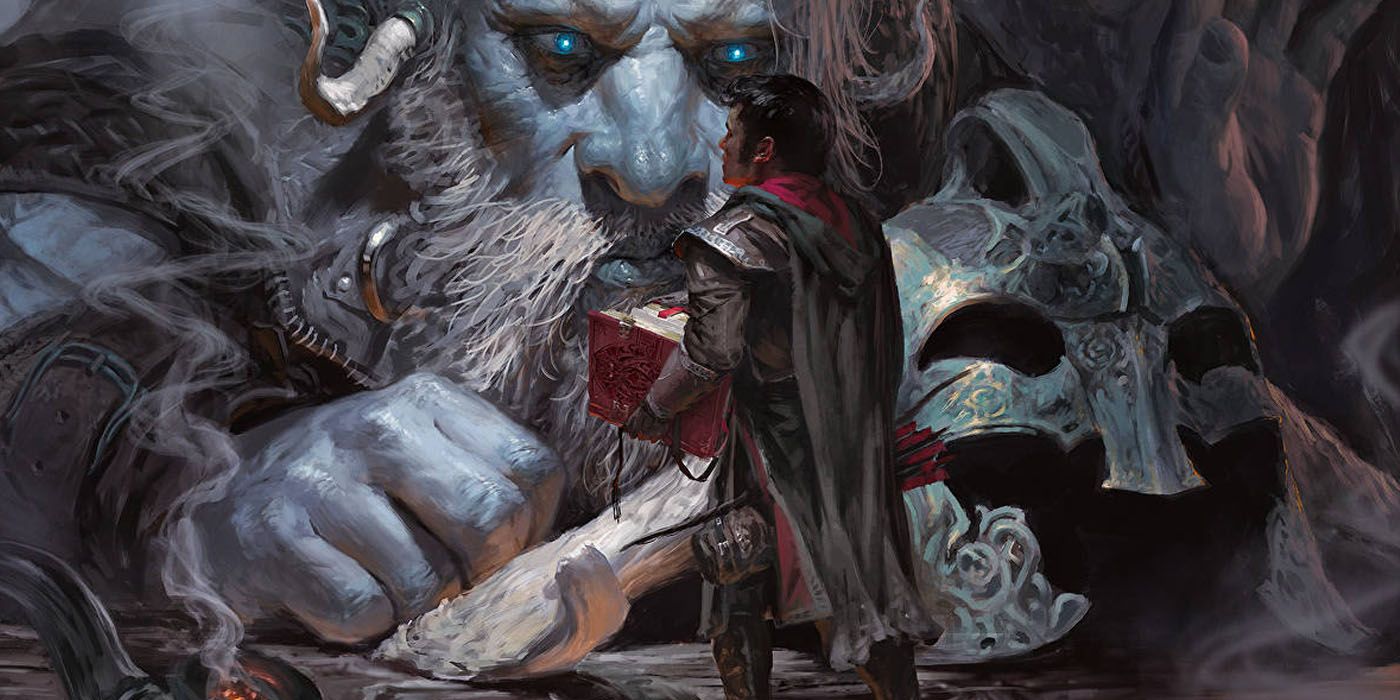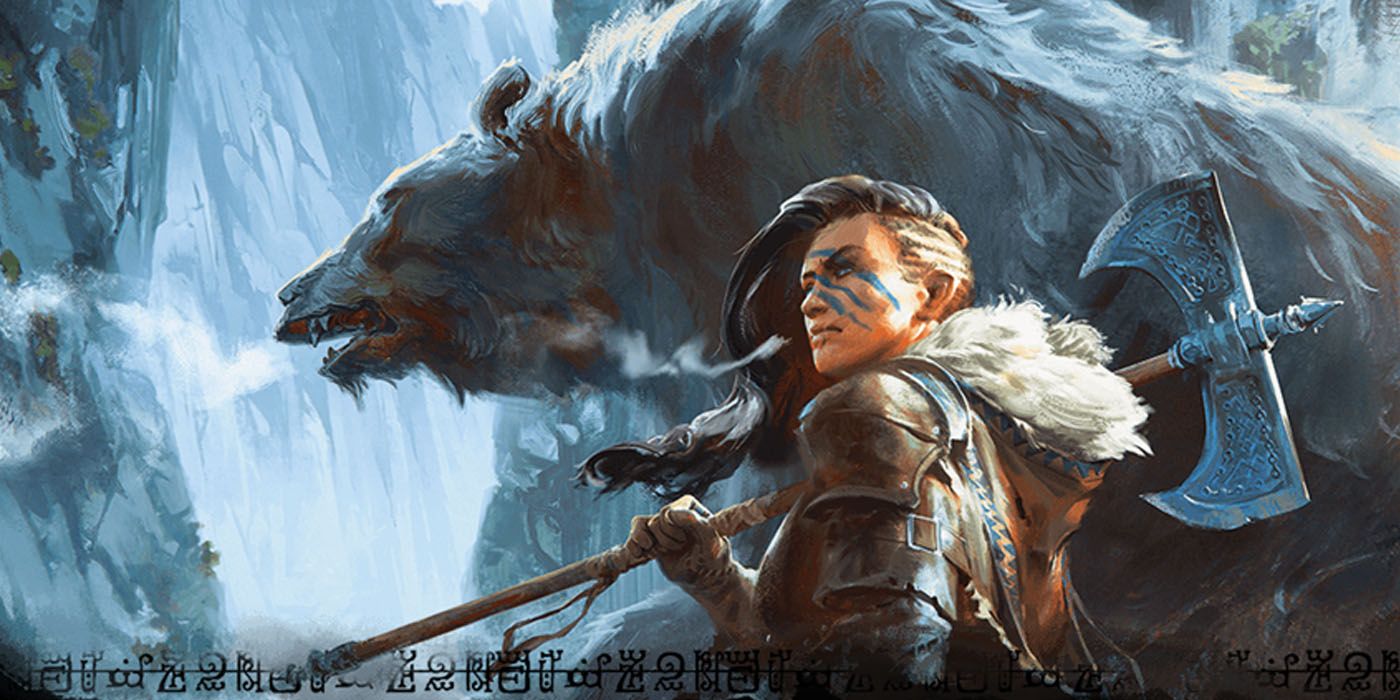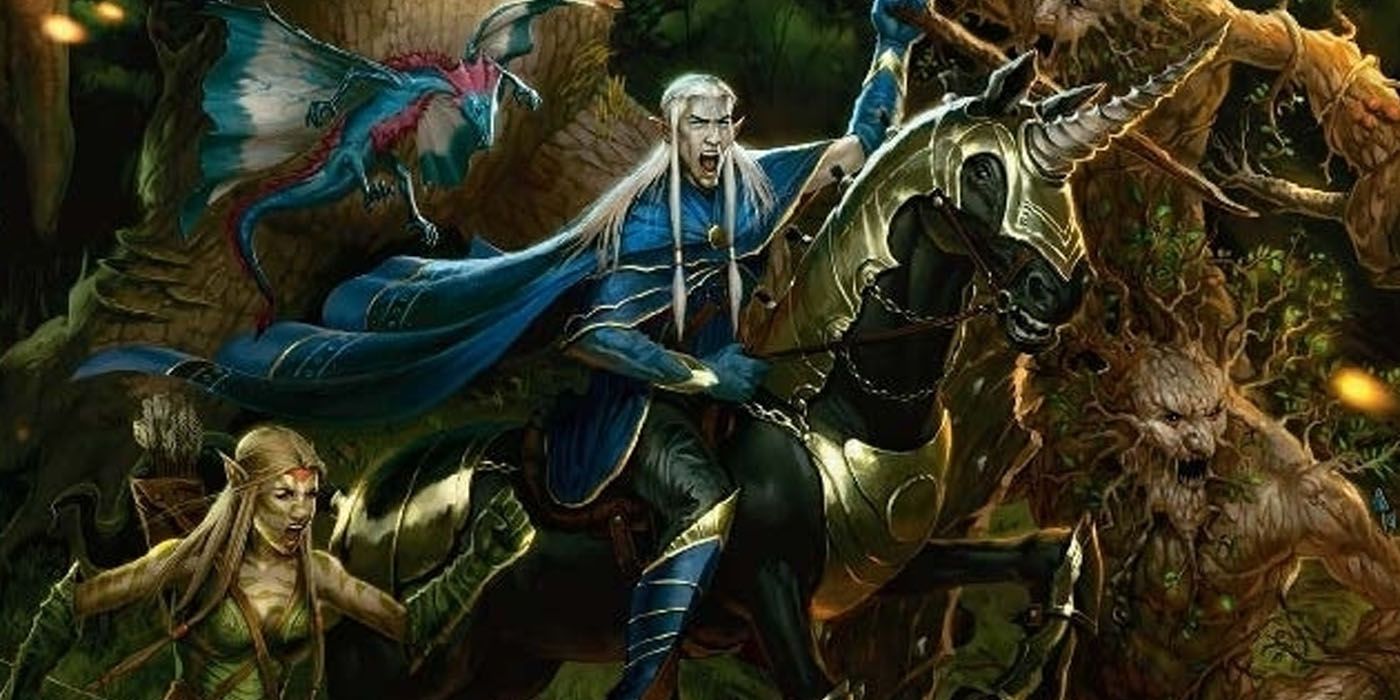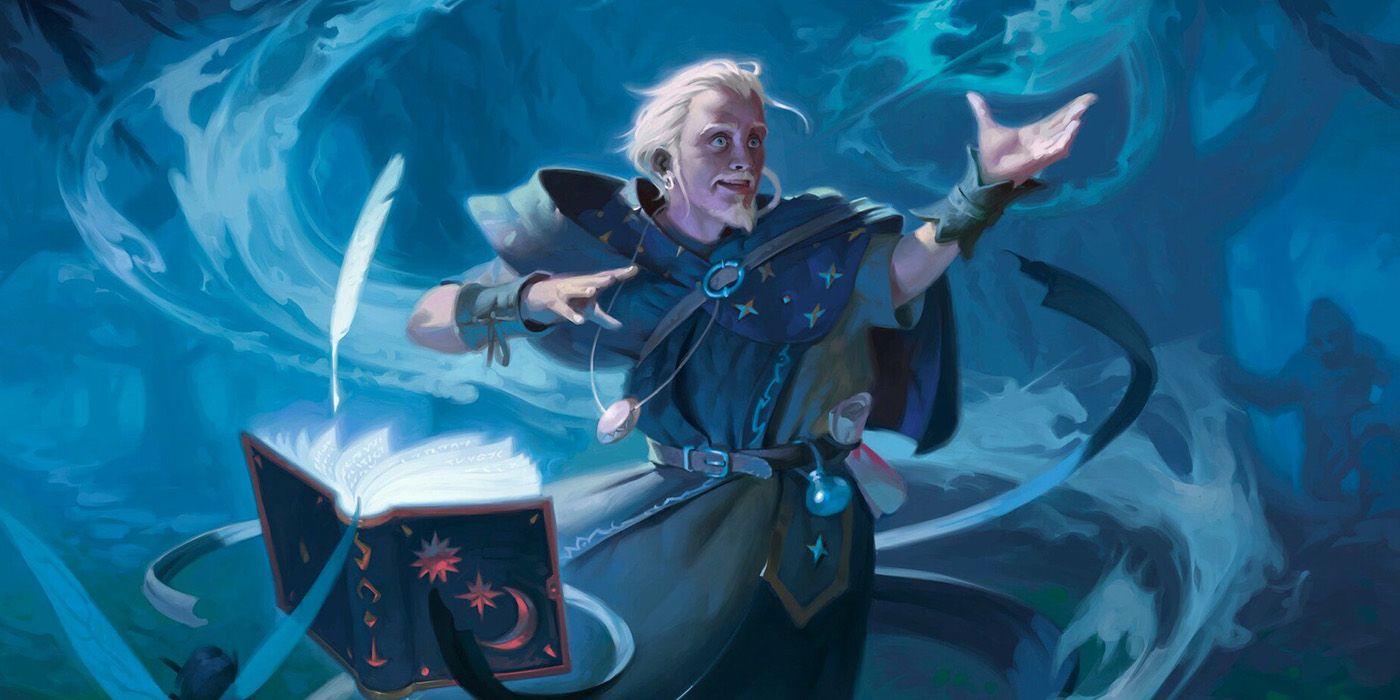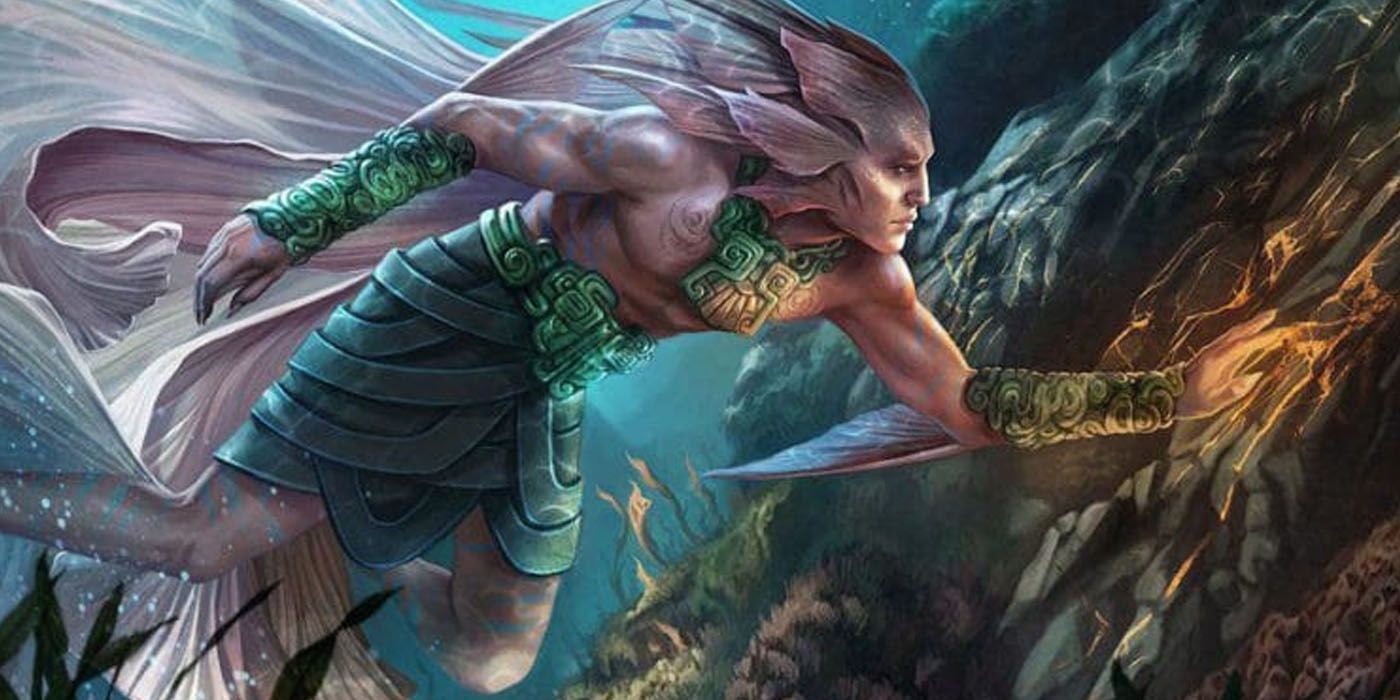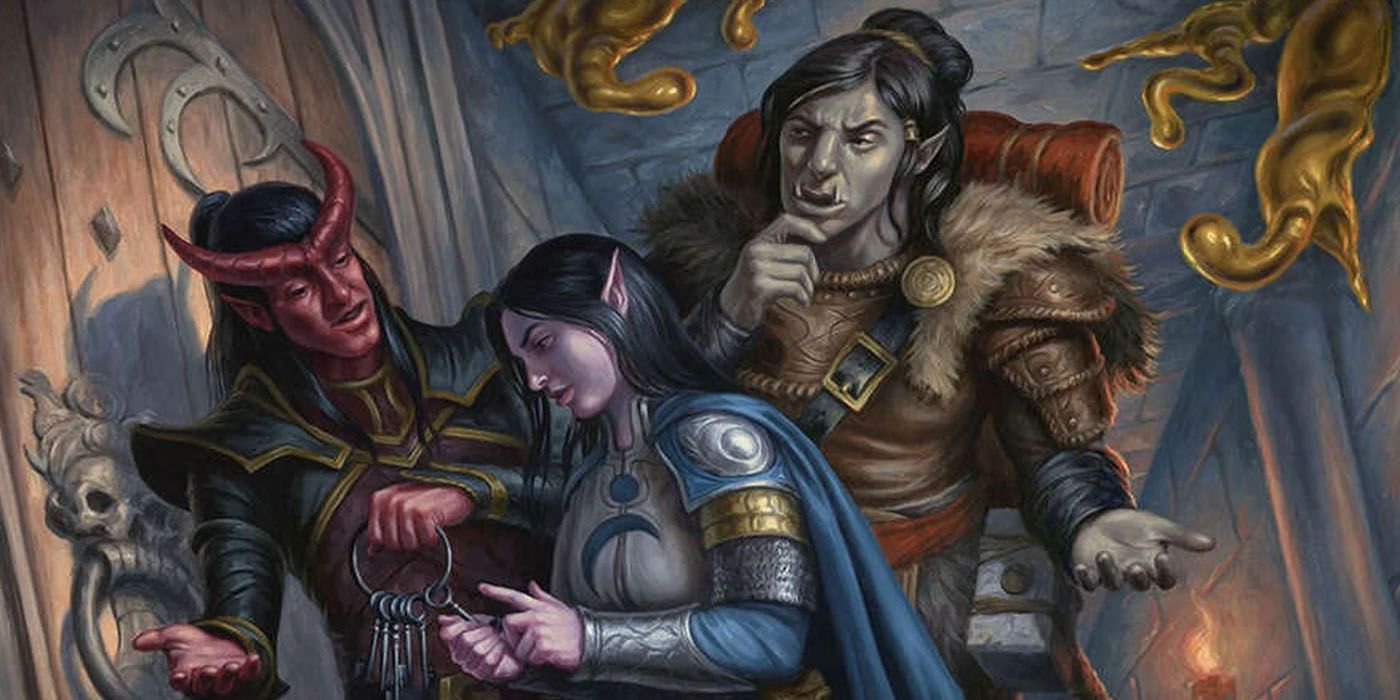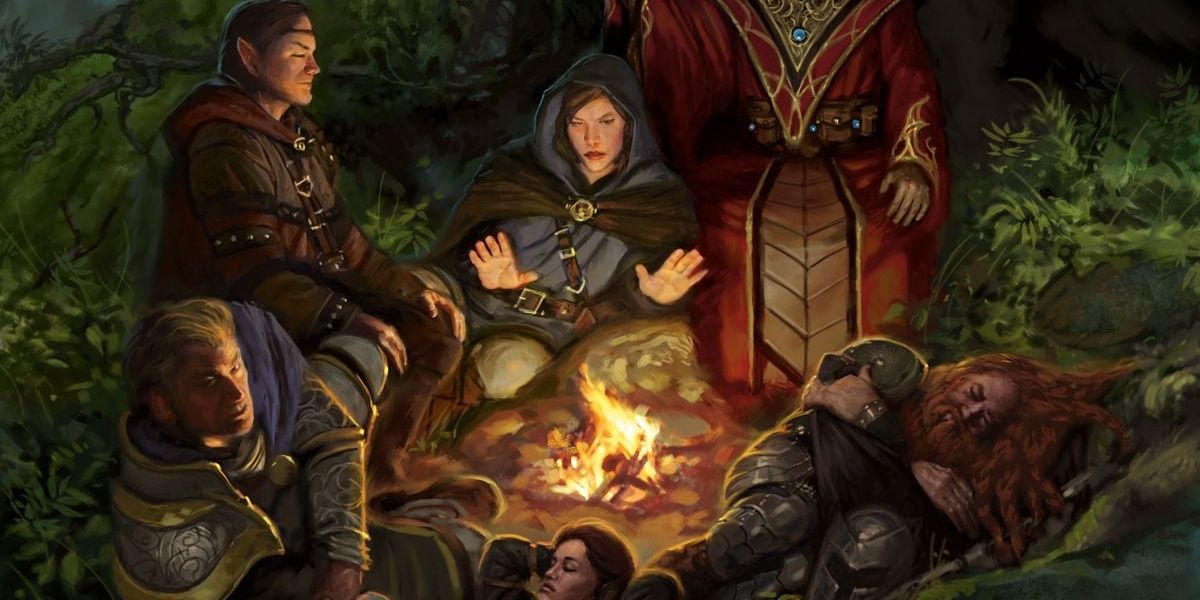Roleplaying games like Dungeons and Dragons attract all kinds of people, and everyone should have an equal seat at the table. While D&D is built for a particular style of roleplaying, it can accommodate a wide variety of players and play styles, and a skilled DM and open-minded group should be able to find a way to keep everyone at the table happy.
While every individual is obviously unique, some editions of the Dungeon Master's Guide try to lay out the broad archetypes that players tend to fall into. Identifying which category any given player falls into can be a helpful way for DMs to make sure they're providing enough content that will appeal to those players and not pushing the game in a direction that is only satisfying for half the table. Of course, these categories are far from strict or prescriptive. No amount of generalizing is a substitute for open, honest communication at the table.
8 The Actor Wants To Be In Character
Players who fall into the Actor role love to get fully immersed in their character. They will often speak in the first person when roleplaying and carefully consider every action from an in-character perspective. They will often come into the game with a robust character backstory and concept and will be best satisfied by games where this information is always at the forefront. DMs with an Actor in their group will need to be ready to engage with them in character as a wide variety of NPCs and be willing to roll with the punches if they ask unexpected questions.
If the rest of the group is not quite as enthusiastic about deep, in-character conversations, they may become bored while the Actor takes a lot of the spotlight, which the DM should be on the lookout for. If the whole party is made up of Actors who would rather talk it out than engage in combat, it might be worth looking into some more narrative RPG systems.
7 The Explorer Will Ask A Lot Of Questions
Exploration is one of D&D's three pillars, and the Explorer is all about it. These players are interested in the setting and its inhabitants, always asking questions and looking for more information. They may or may not come at this from an in-character perspective, but either way, the DM will need to be ready to answer a lot of questions.
When running in an established setting, Explorers might read up on too much information and risk spoiling plot points the DM has planned or even contradicting the DM's choices about how to alter the setting. Perhaps the biggest concern around the Explorer is that DMs themselves are the most likely to be one. DMs who love worldbuilding and setting creation need to be sure to check themselves before they risk monologing to their party or setting them on a railroad.
6 The Instigator Can Be Valuable Or Dangerous
As their name suggests, Instigators like to make things happen. They are prone to taking risks just to push the narrative forward. This can be a godsend in parties that are overly cautious, as an Instigator can be the little push that helps get the story rolling. Every blessing has a curse, however, and an Instigator running wild can easily derail the campaign by putting the party in extreme danger.
It's important that everyone be on the same page about the tone of the game and the levels of danger and power at play. It is doubly important that this be established early, as an Instigator can be difficult to rein in once they feel like they can go anywhere and do anything.
5 The Power Gamer Optimizes Their Character
Though sometimes used as a pejorative in the D&D community, being a Power Gamer is a perfectly valid way to enjoy D&D. Power Gamers love to get into the nuts and bolts of the game's rules and find interesting and powerful combinations and builds. D&D is, in the grand scheme of things, a very crunchy game, and it seems a shame to put people down for enjoying that.
Power Gamers may or may not be super engaged in the story side of things, so it's important to make sure they are not being disruptive when the Actors or Storytellers are taking center stage. Understanding what the Power Gamer's build is made to be good at and giving them plenty of chances to shine is the surest way to make them happy.
4 The Slayer Favors Direct Solutions
Slayers are like Power Gamers, but they are more focused on results than they are on the process. In addition to killing monsters, Slayers love to get the upper hand in social situations and acquire a ton of gold. In many ways, this means they are easy to run for because their goals are clear and easy to implement.
Like the Instigator, however, they run the risk of disrupting the campaign by barreling towards the simplest plan at top speeds. Slayers may need to be gently guided to let others who have an interest in more nuance have a chance once in a while. At the same time, it's good to throw them a bone and let them win handily from time to time.
3 The Storyteller Follows The Narrative
The Storyteller is a lot like the Actor except that they are interested in the broader narrative more than their specific character. They will often make suboptimal decisions if it serves the narrative, which can potentially lead them into conflict with the Slayer or the Power Gamer. Working as a group to determine the best balance of narrative and optimization will be extremely important in making the Storyteller happy.
Like with the Explorer, DMs often fall into the Storyteller category and may need to check themselves to ensure they're letting everyone meaningfully contribute to the narrative and do what makes them happy. Storytellers can have a great time playing Dungeons and Dragons, but there may be other games out there more conducive to their love of narrative play.
2 The Thinker Seeks Creative Solutions
If the Slayer likes to plow through every obstacle and win, the Thinker likes to outsmart everything in their path and win in unexpected ways. Thinkers who value the story at the table will be incredibly invested in the setting because they will be looking for in-character solutions for all problems.
Others, however, will forget to ground their creative solutions in the universe, which can make things feel unrealistic or unsatisfying. DMs will always need to be on their toes with a Thinker in the party and be ready to adapt to their solutions. The key to running a good game for a Thinker is figuring out how to reward their creativity without letting it completely defang the story's stakes.
1 The Watcher Is Happy Sitting Back
D&D is a social game, and some people just like to be there with friends. They may participate in combat and roleplaying to an extent, but the Watcher is going to be in the background a lot of the time. If a DM thinks they have a Watcher on their hands, it is important to determine if the player is dissatisfied with the game in some way that is causing them to withdraw or if they are honestly happiest playing that way. If it's the latter, then it is important to let them play how they like.
It may feel odd to the DM or other players, but letting them do what they are comfortable with is going to satisfy them just as much as an epic combat is going to satisfy the Power Gamer. If the Watcher is being distant because they are unsatisfied with some aspect of the game, it might be time to have a broader conversation with the whole table about whether the campaign is working or if D&D is the right game for the group at all.

-1.jpg)
